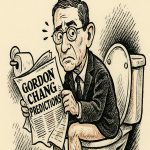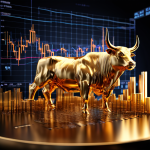Market Factors Definition: Mastering Strategic Thinking
Nov 26, 2024
The Chessboard of Markets
Markets are battlefields where every move risks triumph or ruin. Like chess, they demand sharp observation, anticipation, and a strategy that balances attack and defence. Chess players study the board, predict moves, and adapt. Similarly, investors and economists must analyze forces, foresee shifts, and position themselves to win.
But markets don’t play fair. They’re fluid, unpredictable, and shaped by factors that change in real-time. Thriving here requires mastering strategic thinking—a fusion of data, psychology, and timeless wisdom from the great minds of history.
This essay explores market dynamics—factors, indicators, and human psychology—to sharpen your edge in an ever-changing game.
Market Factors: The Strategic Foundations
Market factors are the DNA of economic behaviour—the drivers like supply, demand, pricing, and sentiment. They’re the bricks of strategy, constantly shifting and evolving. A disruption in supply chains or a surge in confidence can send ripples—or shockwaves—through the system.
The strategist’s challenge is observing these shifts and predicting their interactions. Like a chess master reading the board, successful market players assess the pieces and anticipate their next move. The real skill lies in understanding the dynamic interplay of factors and adapting strategies to stay ahead.
Market Indicators: The Compass of Decision-Making
If factors are the foundation, indicators are the compass, signalling the market’s health and momentum. Stock prices, GDP growth, and inflation rates reveal market sentiment and direction.
But remember: factors drive the market, and indicators reflect its reaction. A supply disruption (factor) might lead to rising prices (indicator). Distinguishing between the two is vital—factors set the stage, and indicators provide actionable insight.
Like chess players interpreting piece placement, market participants synthesize multiple signals and craft strategies. No single indicator is infallible; success comes from blending insights with understanding the underlying forces.
Mass Psychology: The Invisible Driver
Markets aren’t just about numbers—they’re ruled by human emotion. Fear, greed, optimism, and doubt ripple through them, amplifying trends and triggering reactions.
Crowd psychology fuels market moves: fear sparks sell-offs, greed inflates bubbles. Understanding these dynamics is a secret weapon for staying ahead. As Sun Tzu said, “Know your enemy and know yourself, and you can fight a hundred battles without defeat.”
Mastering mass psychology means reading the crowd’s motivations and taming your own emotions. Detaching from noise and focusing on the bigger picture sets strategic thinkers apart from impulsive players.
Strategic Thinking and the Art of Chess
Chess is a game of infinite possibilities, and the best players can think several moves ahead, anticipating their opponent’s strategies and adapting their own accordingly. This level of strategic thinking requires an understanding of patterns and probabilities and the ability to take calculated risks.
Consider the mindset of a chess player studying the board. They assess the current position, evaluate potential moves, and predict their opponent’s countermoves. They must balance offence and defence, knowing when to push forward and when to consolidate their position. This delicate dance of strategy mirrors the decision-making process in economic markets.
The Russian chess grandmaster Garry Kasparov, who dominated the game for over two decades, understood the importance of this strategic mindset. He once said, “A world champion must always analyze carefully and never forget even the smallest detail. He must have a fantastic memory and be able to calculate variations with the speed of a computer.” This description could easily apply to a successful investor or economist, who must process vast amounts of data, identify patterns, and make swift yet calculated decisions.
The Wisdom of Brilliant Minds
Throughout history, brilliant thinkers have offered insights into strategic thinking and decision-making that resonate with market factors and indicators.
1. Sun Tzu (China, 6th century BC): As mentioned earlier, Sun Tzu’s “The Art of War” is a treasure trove of strategic wisdom. His principles of knowing oneself and the enemy, adapting to changing circumstances, and using deception to gain an advantage are highly applicable to market strategy.
2. Niccolò Machiavelli (Italy, 1469-1527): Machiavelli’s “The Prince” offers insights into the art of power and strategy. He emphasizes the importance of understanding the forces at play, adapting to changing circumstances, and using cunning to achieve one’s goals. Machiavelli writes, “Hence it is that all armed prophets have conquered, and the unarmed ones have failed,” recognizing the importance of strategic power.
3. Adam Smith (Scotland, 1723-1790): Smith, often considered the father of modern economics, revolutionized market thinking with his concept of the “invisible hand.” In his book “The Wealth of Nations,” Smith argues that market forces, driven by individual self-interest, naturally lead to beneficial outcomes for society. This highlights the power of market factors and the role of individuals within them.
The High-Stakes Game: Mastering Risk and Reward
Alright, market gladiators. Let’s get down to the nitty-gritty of what separates the rookies from the legends: navigating the dangerous seas of risk and reward. This is where fortunes are made and lost; the bold thrive, and the timid dive.
Enter the ‘Falling Wedge, a pattern that screams opportunity in the face of a downward spiral. Picture this: converging trend lines sliding downward, signalling that the selling pressure is fizzling out. The market’s wink hints that the bulls are gearing up for a comeback. Most see despair; the savvy see a setup.
But here’s the twist—not every Falling Wedge is your golden goose. Sometimes, the market loves to play tricks, leading you into a false breakout. That’s when the price teases above the resistance line, only to drop like a stone, leaving unprepared traders in the dust. The pros know this game, and they come prepared.
Case Study: Bitcoin’s Rollercoaster Ride
Cast your mind back to late 2018. Bitcoin was bruised, battered, and bleeding value after months of relentless decline. But amidst the carnage, the sharp-eyed spotted a ‘Falling Wedge’. The stage was set. Those with nerves of steel anticipated the bullish reversal, but they weren’t fools rushing in. They set their stop-loss orders just below the pattern’s support—a safety net for the brave.
And then it happened. Early 2019 saw Bitcoin explode out of the wedge, skyrocketing in a rally that left cautious onlookers kicking themselves. The traders who played it smart reaped the rewards, turning calculated risk into substantial profit. That’s how you ride the dragon, my friends.
Wisdom from the Masters
Think about titans like George Soros and Ray Dalio. They didn’t reach the pinnacle by clutching at crystal balls or counting on certainty—they embraced risk like an old friend, using technical patterns as tools, not crutches. They understood that the market is a living beast, wild and untamed, but patterns give you the insight to anticipate its moves.
They didn’t predict the future—they positioned themselves to profit from it. They read the patterns, weighed the risks, and moved with ice in their veins.
Risk Management: The Trader’s True North
Here’s the naked truth: **Mastering technical patterns is worthless without mastering risk. The elite traders? They don’t just read patterns—they strategize around them. They set stop losses like iron gates, size their positions with surgical precision, and they never, ever bet the farm on a single trade.
Why? Because they know the market’s only certainty is uncertainty. They respect it, prepare for it, and capitalize on it. Through disciplined risk management, they turn the market’s volatility into their playground.
So, are you just a spectator, or are you ready to take the helm? Remember, in these unpredictable waters, it’s not about avoiding the storm—it’s about becoming the storm. Harness the power of technical patterns, manage your risk like a pro, and tilt the odds forever in your favour.
Gear up, stay sharp, and let’s continue our journey to trading mastery. The market waits for no one—it’s time to seize your moment.
Conclusion: The Art of Strategic Thinking in a Dynamic World
Market factors and indicators provide the foundation for strategic decision-making in the economic arena, much like the position of chess pieces on a board. Successful investors and economists must adopt a chess player’s mindset, anticipate market movements, understand mass psychology, and adapt their strategies accordingly.
The wisdom of brilliant minds throughout history underscores the importance of strategic thinking. From Sun Tzu to Bolívar, these thinkers emphasized the need to understand one’s environment, adapt to change, and recognize the interplay of human behaviour and market forces.
Winning the market game isn’t about luck or brute force—it’s about sharp strategy, understanding market forces, and decoding the signals in indicators and psychology.
The best players know certainty is an illusion. Success lies in adaptability, foresight, and disciplined action. Markets are alive and constantly evolving. To master them, you must think ahead, anticipate shifts, and act decisively.
So, are you ready to play the game?
Hidden Narratives: Unearthing Rare and Valuable Stories













